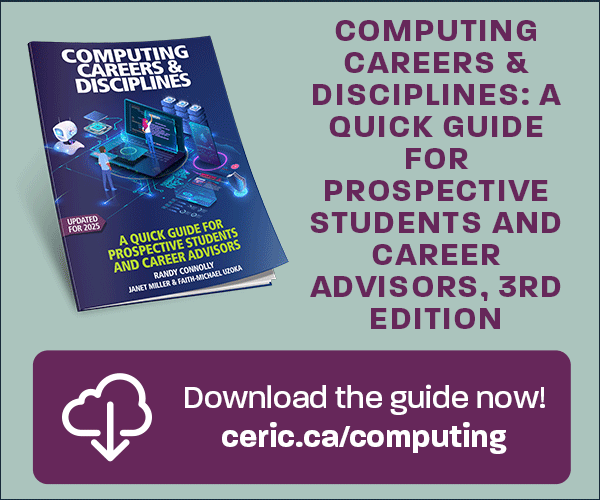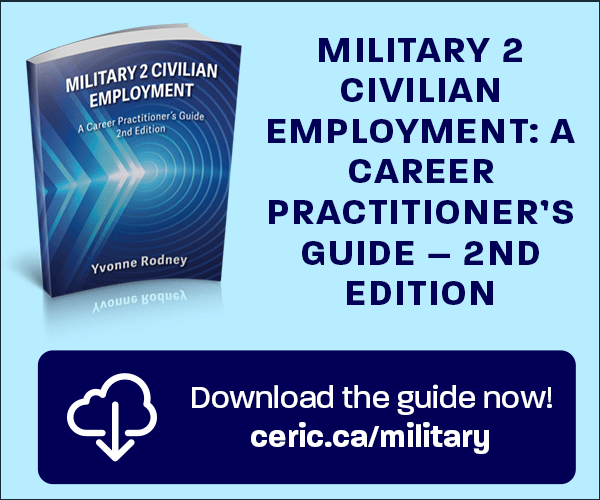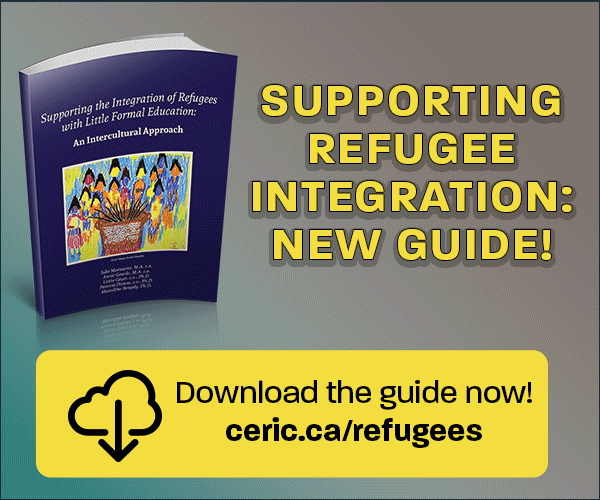A Longitudinal Study of the Effects of Context and Experience on the Scientific Career Choices of Canadian Adolescents
Keywords:
longitudinal, context, experience, scientific career choice, canadian, adolescentsAbstract
A longitudinal study was conducted on a sample of Canadian adolescents to track changes in science/math career choice development over a five-year span and to examine the impact of contextual and experiential factors on later choices. For the current study, five years after the initial data collection, 116 of the original participants were contacted to determine their field of study or nature of work (science or non-science). Results from a crosstabulation of gender and career choice showed a significant difference between males and females in stability of career choice. Approximately 64% of males, but only 41 % of females, remained with their original science career choice. The main reasons cited by both males and females for moving away from a science career were a change in interests, difficulty with science and math courses, and the influence of work placement. Sequential logistic regression results indicated that measures of learning experiences, self-efficacy, outcome expectations, and interests contributed significant unique variance to the prediction of scientific career choice five years later.
References
Athanasou, J. (2002). Vocational pathways in the early part of a career: An Australian study. The Career Development Quarterly, 51, 78-85.
Bandura, A. (1986). Social foundations of thought and action: A social cognitive theory. Englewood Cliffs, NJ: Prentice Hall.
Breakwell, G. M., Fife-Shaw, C., & Devereaux, J. (1988). Parental influence and teenagers’ motivation to train for technological jobs. Journal of Occupational Psychology, 61, 79-88.
Creed, P., Patton, W., & Prideaux, L. (2006). Causal relationship between career indecision and career decision-making self-efficacy. A longitudinal cross-lagged analysis. Journal of Career Development, 33, 47-65.
Earl, J. E., & Bright, J. E. H. (2007). The relationship between career decision status and important work outcomes. Journal of Vocational Behavior, 71, 233-246.
Ferreira, J. A., Santos, E. J. R., Fonseca, A. C., & Haase, R. F. (2007). Early predictors of career development: A 10-year follow-up study. Journal of Vocational Behavior 70, 61-77.
Ferry, T. R., Fouad, N. A., & Smith, P. L. (2000). The role of family context in a social cognitive model for career-related choice behavior: A math and science perspective. Journal of Vocational Behavior, 57, 348-364.
Fouad, N. A., & Smith, P. L. (1996). A test of a social cognitive model for middle school students: Math and science. Journal of Counseling Psychology, 43, 338-346.
Gadalla, T. M. (2001). Patterns of women’s enrolment in university mathematics, engineering and computer science in Canada, 1972- 1995. Canadian Journal of Higher Education, 31, 1-15.
Haines, V. A., & Wallace, J. E. (2002). Exploring the association of sex and majoring in science. Alberta Journal of Educational Research, 48, 188-193.
Hein, C., & Lewko, J. H. (1994). Gender differences in factors related to parenting style: A study of high performance science students. Journal of Adolescent Research, 9, 262-281.
Jackson, M. A., Potere, J. C., and Brobst, K. A. (2006). Are success learning experience and self-efficacy beliefs associated with occupational interests and aspirations of at-risk urban youth? Journal of Career Assessment, 14 (3), 333-353.
Krahn, H. (1988). A study of the transition from school to work in three Canadian cities: Research design, response rates, and descriptive results. MN: University of Alberta, Department of Sociology.
Lapan, R. T., Shaughnessy, P., & Boggs, K. (1996). Efficacy expectations and vocational interests as mediators between sex choice of math/science college majors: A longitudinal study. Journal of Vocational Behavior, 49, 277-291.
Lent, R. W., & Brown, S. D. (February, 2006). On conceptualizing and assessing social cognitive constructs in career research: A measurement guide. Journal of Career Assessment, 14, 12-35.
Lent, R. W., & Brown, S. D. (April, 2006). Integrating person and situation perspectives on work satisfaction: A social-cognitive view. Journal of Vocational Behavior, 69, 26-247.
Lent, R. W., Brown, S. D., Brenner, B., Batra Chopra, S., Davis, T., Talleyrand, R., & Suthakaran, V. (2001). The role of contextual supports and barriers in the choice of
math/science educational options. A test of social cognitive hypotheses. Journal of Counseling Psychology, 48, 474-483.
Lent, R. W., Brown, S. D., & Hackett, G. (1994). Toward a unifying social cognitive theory of career and academic interest, choice, and performance. Journal of Vocational Behavior, 45, 79-122.
Lent, R. W., Brown, S. D., & Hackett, G. (2000). Contextual supports and barriers to career choice: A social cognitive analysis. Journal of Counseling Psychology, 47, 36-49.
Lent, R. W., Brown, S. D., Talleyrand, R., McPartland, E. B., Davis, T., Batra Chopra, S., Alexander, M. S., Suthakaran, V., & Chai, C. (2002). Career choice barriers, supports,and coping strategies: College students’ experiences. Journal of Vocational Behavior, 60, 61-72.
Lent, R. W., Lopez, F. G., & Bieschke, K. J. (1993). Predicting mathematics-related choice and success behaviors: Test of an expanded social cognitive model. Journal of Vocational Behavior, 42, 223-236.
Lopez, F. G., Lent, R. W., Brown, S. D., & Gore, P. A. (1997). Role of social-cognitive expectations in high school students’ mathematics-related interest and performance. Journal of Counseling Psychology, 44, 44-52.
Low, K. S. D., Yoon, M., Roberts, B. W., Rounds, J. (2005). The stability of vocational interests from early adolescence to middle adulthood: A quantitative review of longitudinal studies. Psychological Bulletin, 131, 713-737.
Naute, M. M., & Epperson, D. L. (2003). A longitudinal examination of the social-cognitive model applied to high school girls’ choices of nontraditional college majors
and aspirations. Journal of Counseling Psychology, 50, 448-457.
Pinquart, M., Juang, L. P., & Silbereisen, R. K. (2003). Self-efficacy and successful school-to-work transition: A longitudinal study. Journal of Vocational Behavior, 63,
-346.
Plucker, J. A. (1998). The relationship between school climate conditions and student aspirations. Journal of Educational Research, 91, 240-246.
Rojewski, J. W., & Yang, B. (1997). Longitudinal analysis of select influences on adolescents’ occupational aspirations. Journal of Vocational Behavior, 51, 375-410.
Schoon, I. (2001). Teenage job aspiration and career attainment in adulthood: A 17-year follow-up study of teenagers who aspired to become scientists, health professionals, or engineers. International Journal of Behavioral Development, 25, 124-132.
Super, D. E., Savickas, M. L., & Super, C. M. (1996). The life-span, lifespace approach to careers. In D. Brown, L. Brooks, & Associates (Eds.), Career choice and development (3rd ed.) (pg. 121-178). San Francisco, CA: Jossey-Bass.
Tracey, T. J. G., & Robbins, S. B. (2005). Stability of interests across ethnicity and gender: A longitudinal examination of grades 8 through 12. Journal of Vocational Behavior, 67, 335-364.
Tracey, T. J. G., & Robbins, S. B. (2006). The interest-major congruence and college success relation: A longitudinal study. Journal of Vocational Behavior, 69, 64-89.
Tracey, T. J. G., Robbins, S. B, & Hofsess, C. D. (2005). Stability and change in interests: A longitudinal study of adolescents from grades 8 through 12. Journal of Vocational Behavior, 66, 1-25.
Trusty, J., & Ng, K. (2000). Longitudinal effects of achievement perceptions on choice of postsecondary major. Journal of Vocational Behavior, 57, 123-135.
Urajnik, D., Garg, R., Kauppi, C., & Lewko, J. (2007). The effects of context and experience on the scientific career choices of Canadian adolescents. Canadian Journal of Career Development, 5(2), 4-14.
Wang, J., & Staver, J. R. (2001). Examining relationships between factors of science education and student career aspiration. Journal of Educational Research, 94, 312-319.
Wai-Ling Packard, B., & Nguyen, D. (2003). Science career-related possible selves of adolescent girls: A longitudinal study. Journal of Career Development, 29, 251-263.
Whitmarsh, L., Brown, D., Cooper, J., Hawkins-Rodgers, Y., & Keyser Wentworth, D. (2007). Choices and challenges: A qualitative exploration of professional women’s career patterns. Career Development Quarterly, 55, 225-236.

Downloads
Published
How to Cite
Issue
Section
License

This work is licensed under a Creative Commons Attribution-NonCommercial-NoDerivatives 4.0 International License.
















